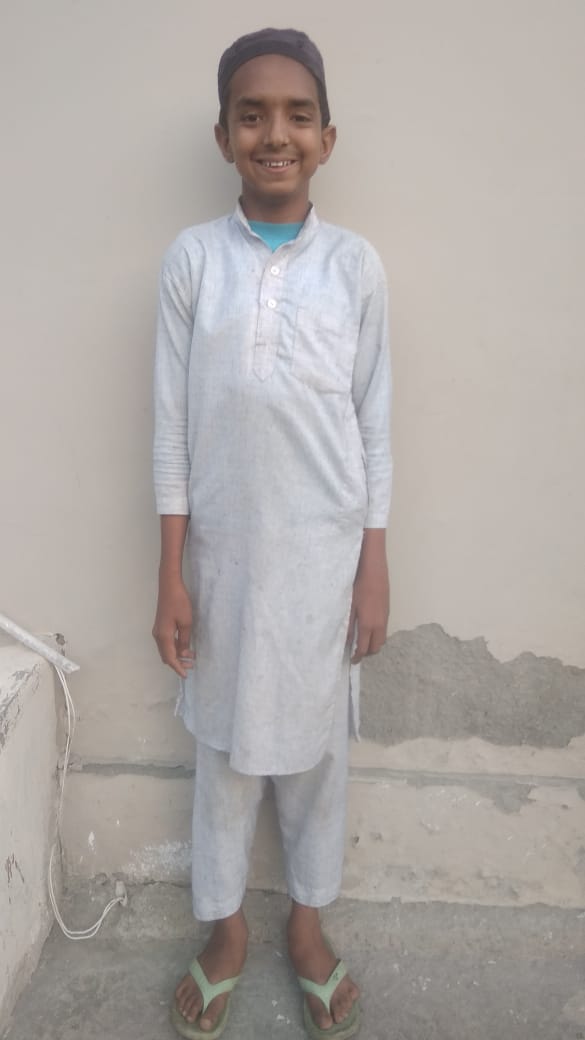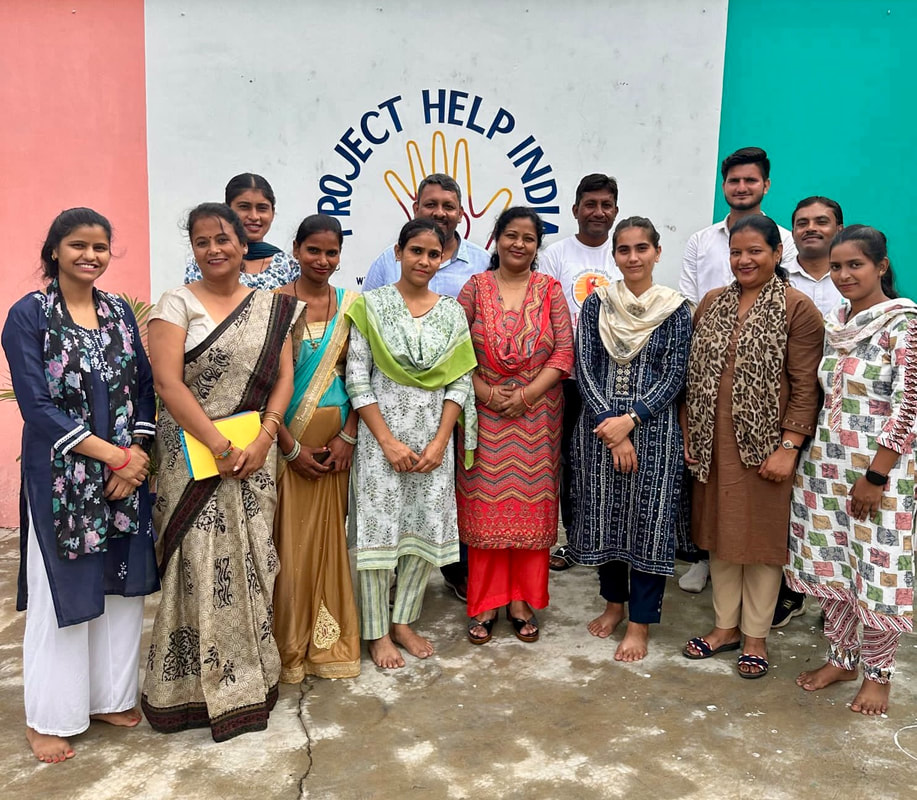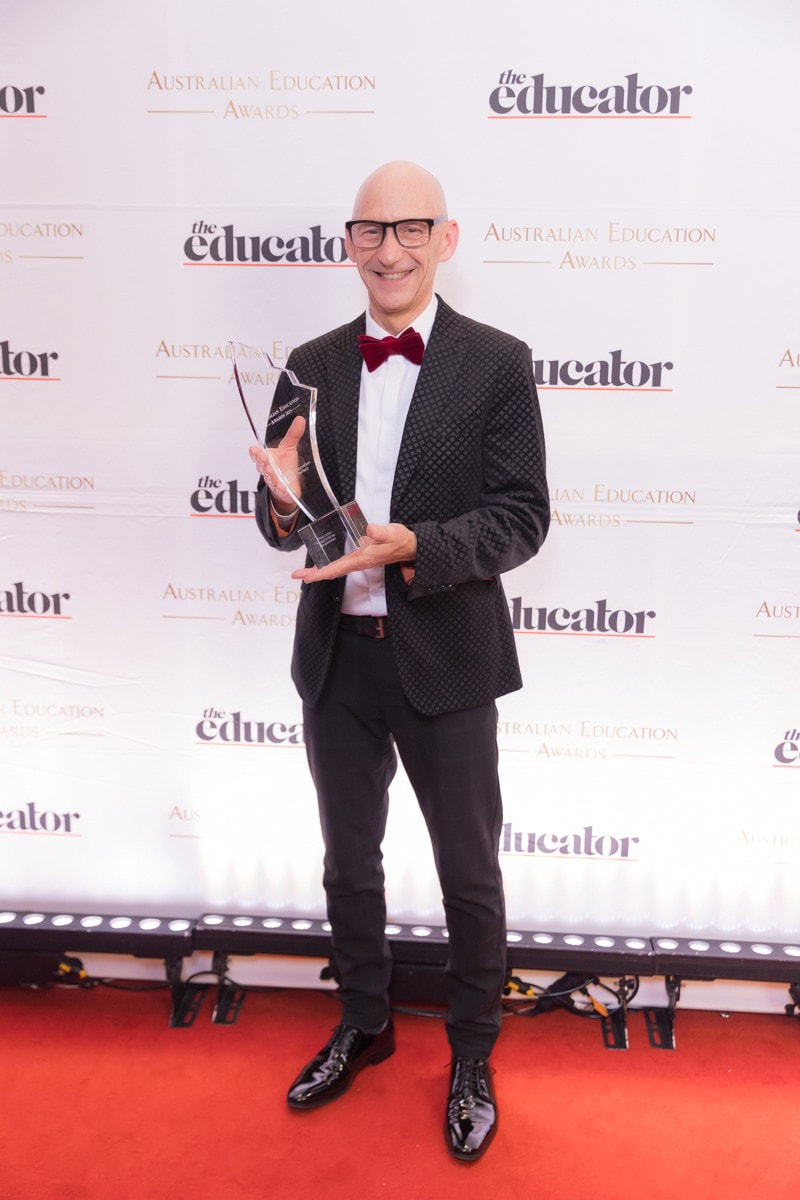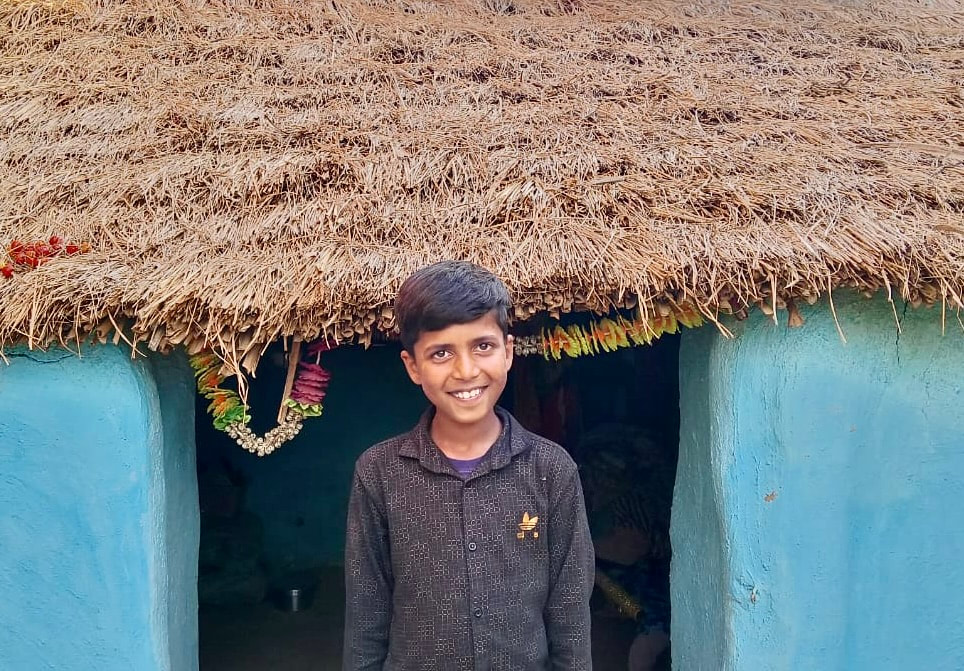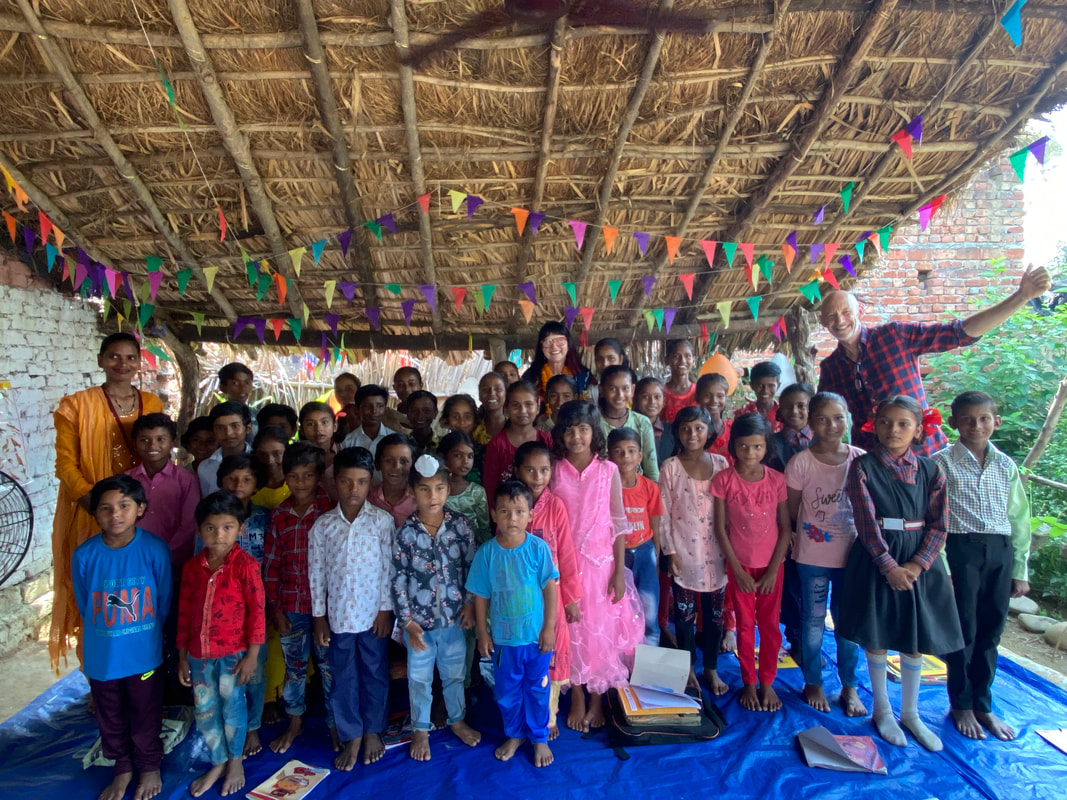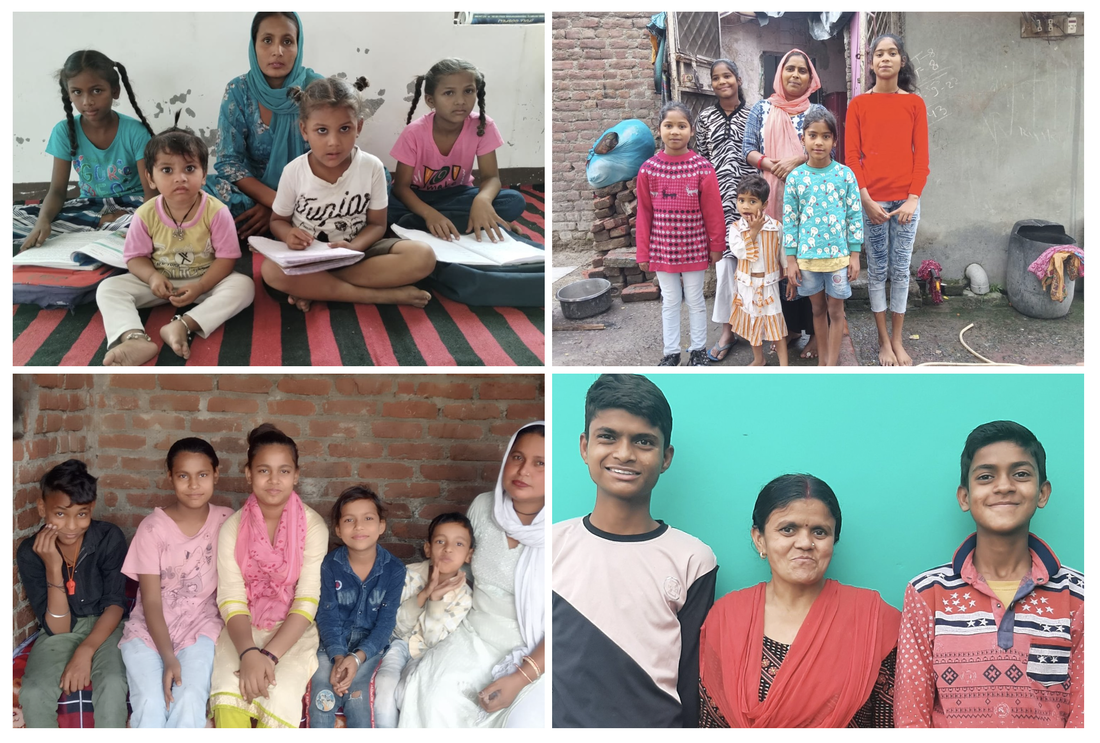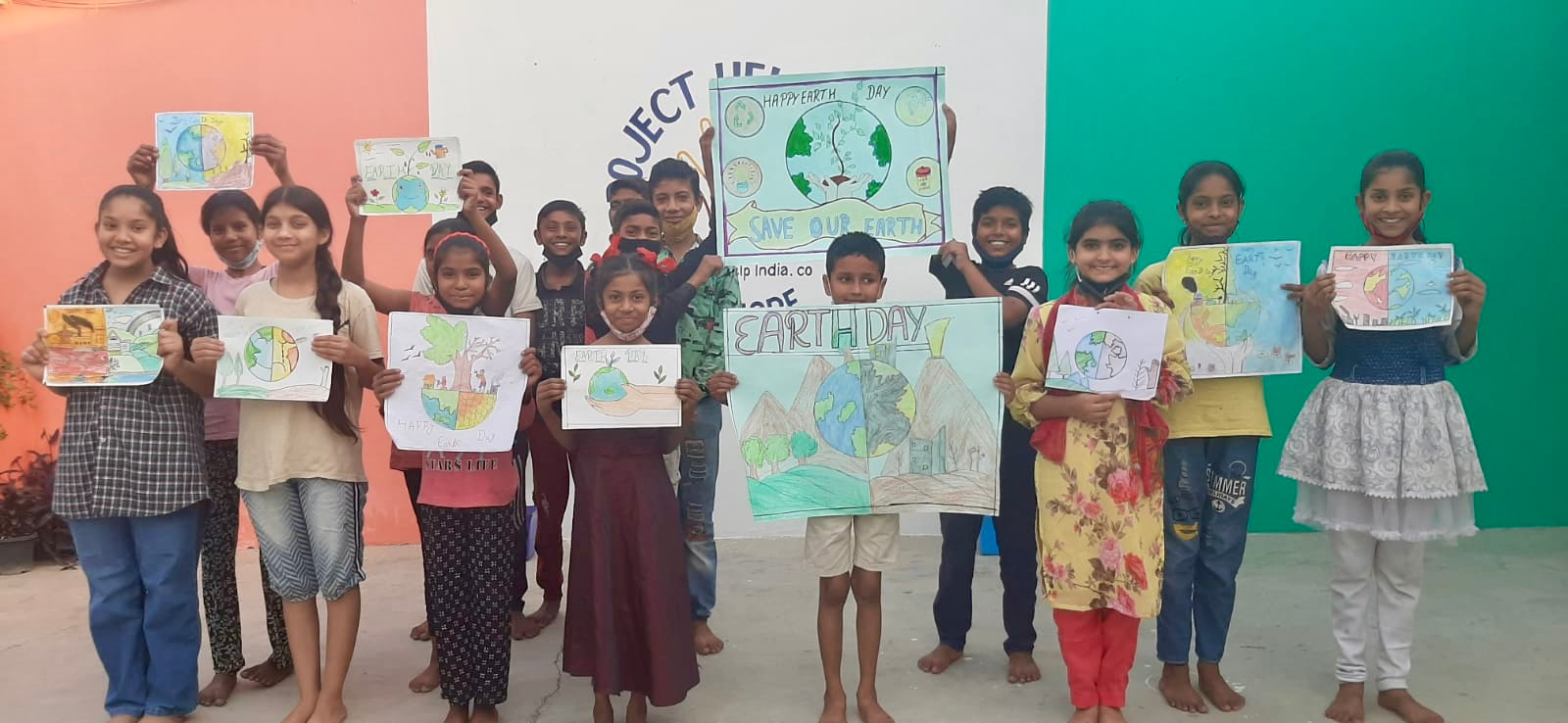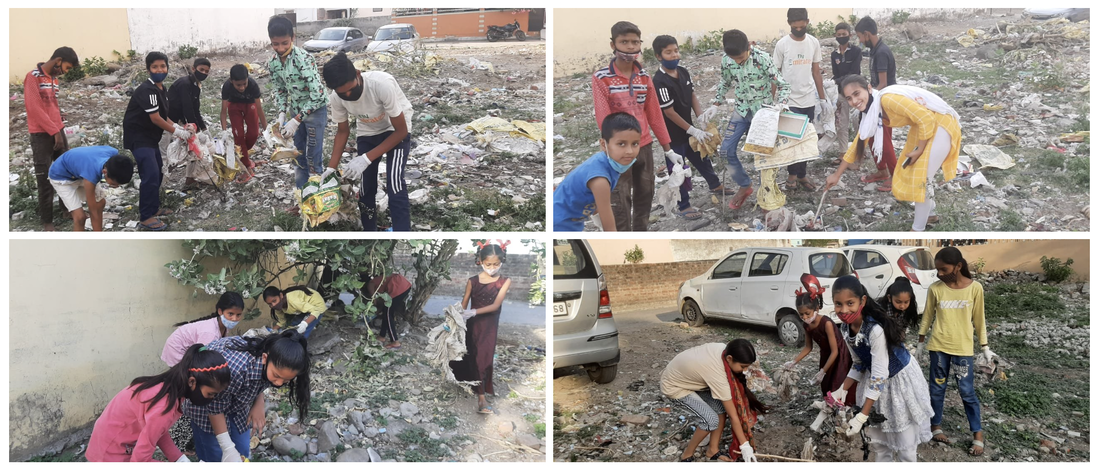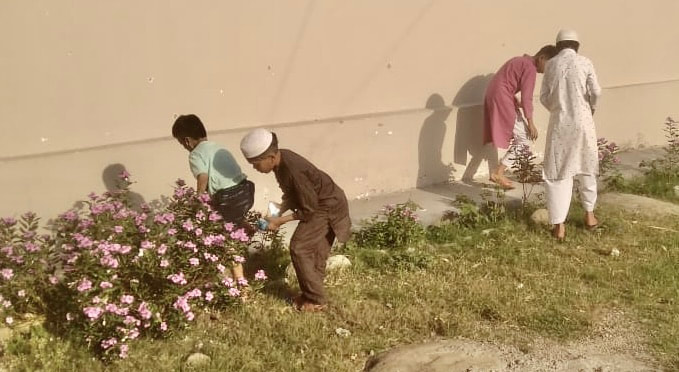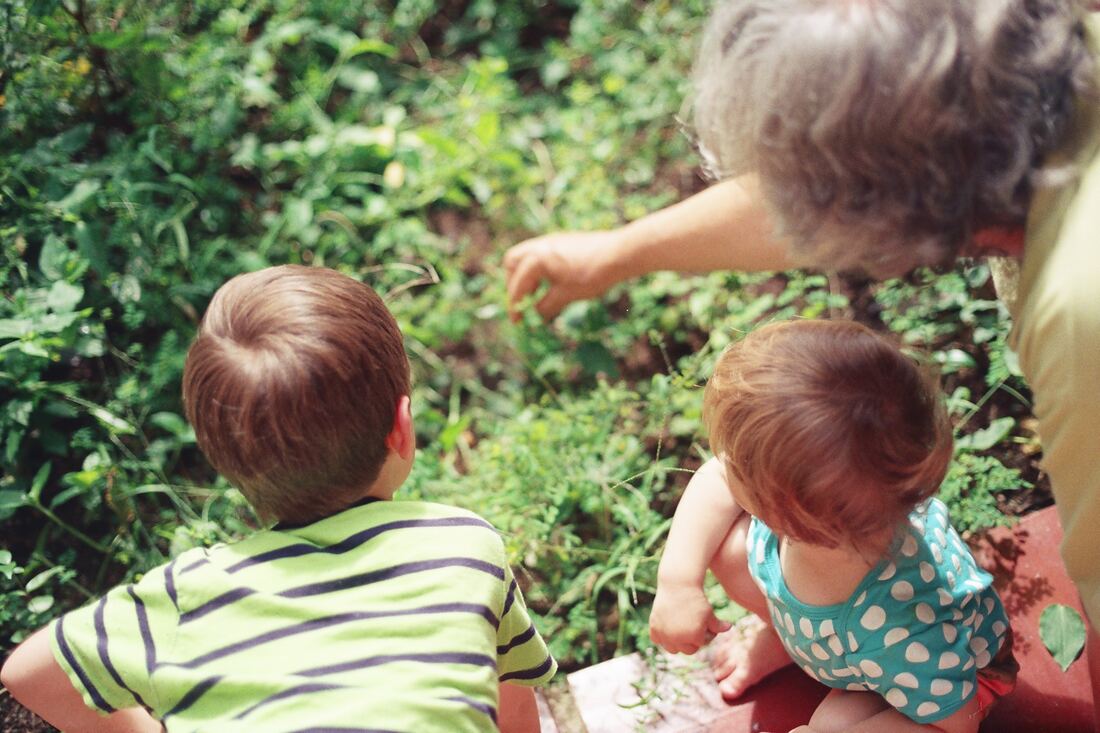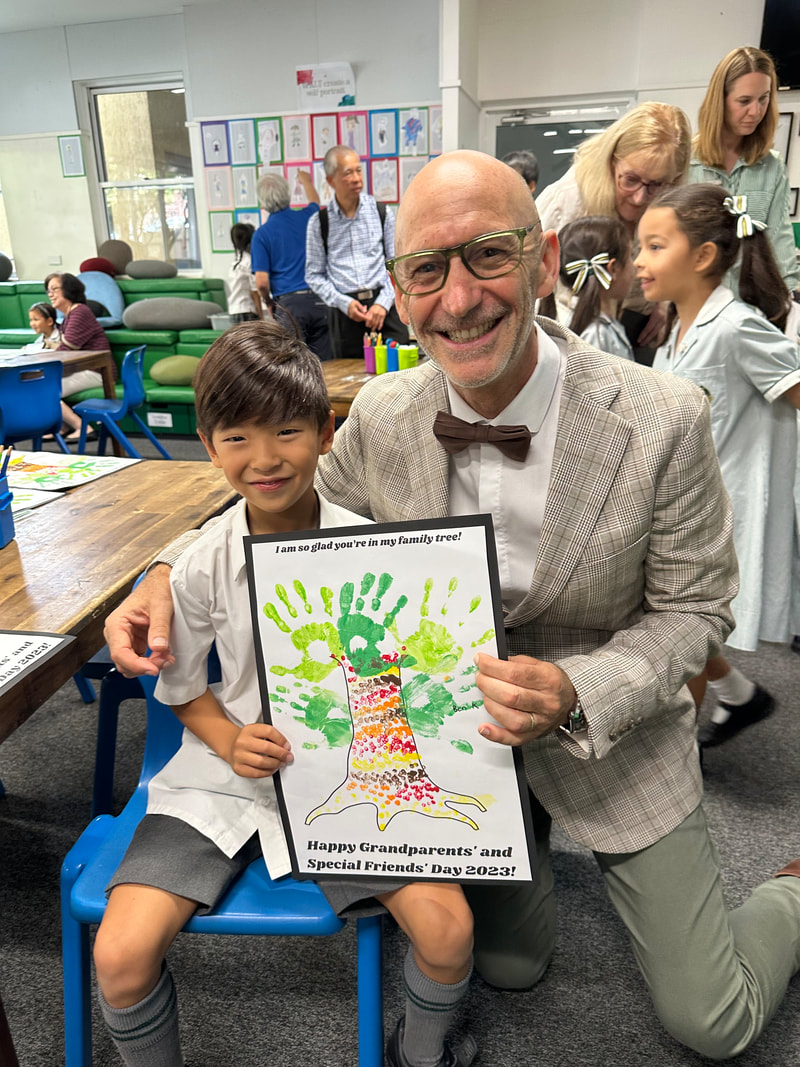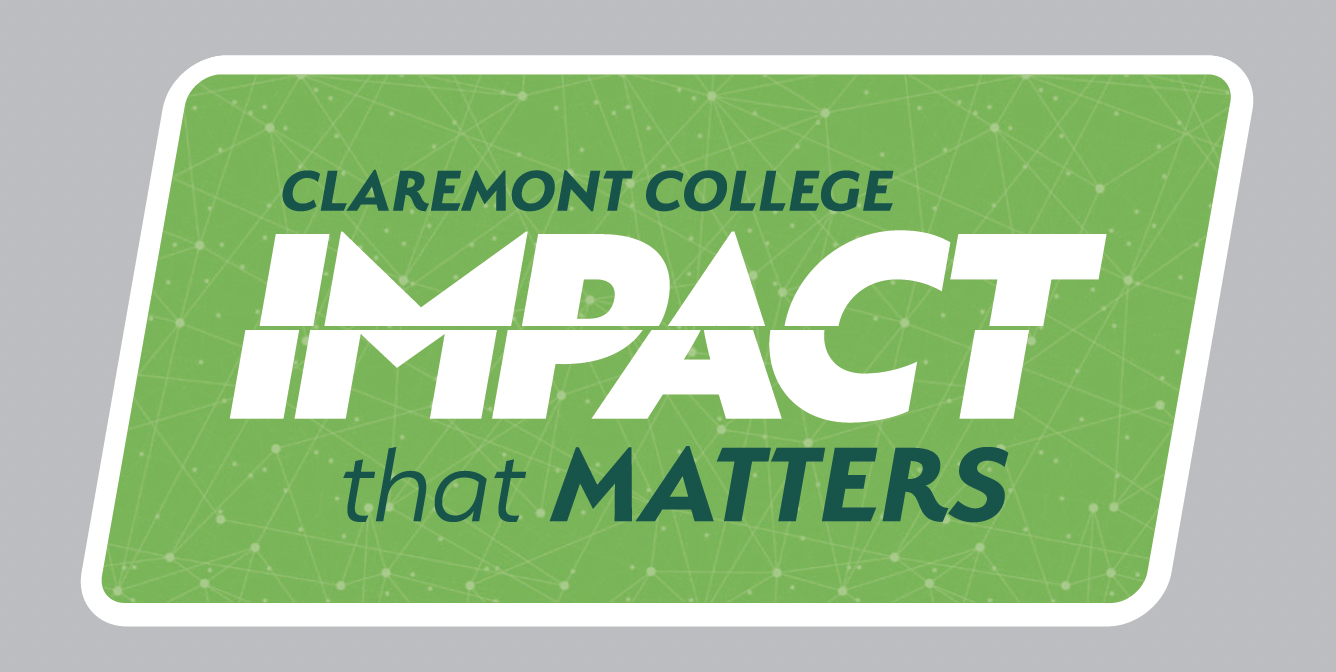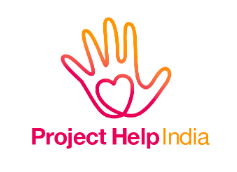|
Today 3rd December is the ‘International Day of Disabled Persons 2023’ and as a member of the Project Help India team, I celebrate the 14 kids who attend the Project Help India Disability Centre in Kotdwara, Uttarakhand in Northern India. We are thankful for the child's unique gifts and beautiful personality. These kids make our lives richer …it is indeed a privilege to educate, help and care for them, to learn alongside them and be inspired by their optimism, courage, determination and resilience in the face of incredible challenges and daily adversity. I am especially grateful for the many people whose kindness and generosity makes it possible for us to fund our Disability Centre. Our Centre is unique to much of India where children with a disability are marginalised and have no access to education. If these 14 children did not attend our centre, they would not go to school at all. With just three weeks to go until Christmas, Project Help India is trying to raise $6000 for our Annual Christmas Appeal, which will enable us to give a Christmas present to the 600 students at our 14 centres. We will also use donations to purchase food and goodies to have a Christmas party, and concert for parents, at each of our centres. Thanks again, love Doug Every $5, $10, $20, $50+ tax deductible donation received by Project Help India goes a really long way in making a significant difference in the lives of children who would not otherwise have the opportunity to attend school or celebrate Christmas this year. You can make a donation HERE Read more about International Day of People with a Disability HERE Please also help me to promote this cause and fundraising appeal by sharing my blog with your family, friends and network. I would really appreciate it. Adnan's Story
0 Comments
This morning I read that Mother Teresa said... “the task is not to do big things but to do small things with great love.” It was a great encouragement to read this and to be reminded that little things are significant when love is found at the centre of it all. I guess this is one of the reasons why at www.projecthelpindia.co we love to use #smallstepsbigpurpose - time and time again, we see how a little goes a long, long way. For those who have been following my recent trip to India, thank you for your interest and support. In a few short weeks we managed to see a lot, achieve a lot and explore ideas, make plans and develop an exciting vision for the year ahead. While we were in India we:
We are also thrilled to be able to commence paying our five teachers, director and administrative officer in Punjab with a small monthly salary (up to this present time, they have kindly volunteered their time and energy). Next we hope to purchase:
And in 2024 we hope to:
Each one of the things that I have mentioned above, while small steps in themselves, definitely come wrapped in great love. We are confident that these things will have a significant impact in the lives of the children, their families and community. I can't wait to share more with you. If any of these things are of a particular interest to you, please let me know. I am so grateful to my friends and supporters of Project Help India whose kindness, compassion and generosity make all of this possible. Thank you again for helping us to bring love, hope and purpose to some very special people. In an announcement that has filled the Claremont College community with immense pride, Mr Doug Thomas, our 19th Principal, has been crowned Primary School Principal of the Year (Non-Government) and named an Excellence Awardee for Australian School Principal of the Year at the 2023 Australian Education Awards. This achievement is not only a testament to Mr Thomas' dedication and unwavering commitment but also reflects the excellence that resonates throughout the College.
The Australian Education Awards honour schools and leaders for their outstanding achievements and transformative work that makes a profound difference in the lives of young people across Australia. Mr Thomas' recognition on this stage is a tribute to his exceptional contributions to education, not only for his work at Claremont College but also his contribution to education on a broader national and international level. The judging panel for the awards were presented with six areas of Mr Thomas’ work and contribution over the past 12 months. His journey of excellence spans across: Nurturing Community Bonds His dedication to fostering a nurturing environment at Claremont College is evident through the establishment of supportive relationships with students, parents, and families within the school community. This compassionate approach has undoubtedly contributed to the holistic growth of each student. Pioneering Teaching Innovation At the heart of educational excellence lies innovation. Mr Thomas' leadership has created an innovative collaborative teaching model, where educators from all sectors (local, interstate and overseas), visit Claremont to observe and learn from their practices and enrich their teaching methodologies. Championing Air Quality and Safety His partnership with a University of New South Wales (UNSW) research project focused on measuring and improving air quality in classrooms exemplifies his commitment to the health and safety of students and teachers. This contribution is set to play a vital role in shaping future policies to ensure the health and safety of educational environments nationwide. Embracing Indigenous Education The journey to reconciliation and understanding takes courage and humility. In October 2022, Mr Thomas delivered an apology at an Indigenous Recognition ceremony, held at Kamay, Botany Bay to acknowledge the First Nations Peoples and the historic trauma committed by educational institutions, particularly church-based schools. This act of reconciliation underscores his commitment to fostering an inclusive and empathetic learning environment. Collaborative Solutions for Teacher Shortage Education thrives when leaders collaborate to solve complex challenges. Mr Thomas’ involvement in the AISNSW Growing and Nurturing Educators (GANE) Committee, demonstrates his dedication to exploring complex issues and delivering a potential solution relating to the current teacher shortage. Global Humanitarian Endeavours Mr Thomas' commitment to education transcends borders, being the Founder and Australian Director of the international charity, Project Help India. In 2022, he participated in humanitarian aid and community development projects including opening two new school centres in Northern India for 150 slum and marginalised children (aged 4 to 15). This dedication reflects his belief in education's power to transform lives. As we celebrate this remarkable achievement, we must also recognise that this award does not only reflect his individual efforts, but the collective dedication of the Claremont College community. His inspiring work and unwavering commitment have shaped the lives of students, staff, and families alike. His journey is inspiring and serves as a reminder that education is a lifelong pursuit that extends far beyond the classroom. I take the opportunity to ask if you would consider making a tax-deductible donation before the end of this financial year. With this, comes the assurance of knowing that your dollar, especially in these days of financial challenges for us all, goes a very long way to help some amazing kids (570 all up) and their families.
I have created this booklet LINK HERE to share 16 beautiful stories about some of the children who have been helped by Project Help India over the past 12 months. So often it can be uncomfortable to know about the impact of poverty, yet in the midst of this, there is great encouragement and hope to be found for us all. You will also be inspired by the powerful impact of love and generosity ...of people helping people. Kids everywhere inspire us and fill our hearts with joy. I am indeed privileged to work with children 5 days a week, and I get to be inspired by them every day. As you read these stories, I hope that you see why these children are so special to my team at Project Help, and I also hope that you have a glimpse of why this work is so important to me. This is why I advocate tirelessly for the right of all children to access education. Before the 30th June might you please consider helping our cause. We are seeking your support by making a lump sum payment in full (or committing to monthly payments across the next 12 months). à $35 to educate a child per month ($420 a year) à $45 to educate a child at our Disability Centre a month ($540 a year) à $100 for a teacher’s monthly salary ($1200 a year). LINK TO DONATE HERE Thank you again, Project Help India could not educate and feed these 570 children without you. I appreciate your interest, compassion, generosity and the encouragement that this brings. Love Doug When you're ten years old. how do you make sense of a life of poverty, and yet be filled with optimism and confidence for the future. This is what hope looks like for Vishal. Not only is he believing in his personal success, but he is looking beyond to how he can make a difference to the lives of other children like him and to bring about long term change in his village. I'm so proud of him! I am Vishal and I am 10 years old. I live in Parmawala Village in the Indian jungle. I’m in Grade 3 at school. My favourite thing is football but mostly we do not have a ball to play with because the big boys steal it. I go to the Project Help Education Centre where there are 48 kids of all ages in my class. Some of us go to the government school during the day but I don’t go all the time, especially during the monsoon rains and when it’s too hot. My feet get blisters which do not go away quickly, so I do not like walking. Sometimes after I walk the long distance even my teacher is mostly not there, so instead I would rather be playing with my friends all day long. At first I didn’t want to go to Project Help but my mother made me go. I wanted to be with my friends instead, where we would hang and not do much and just make a football, or tease the cattle and get into trouble. But now I realise that when I study hard I can hope to see my dreams come true. As I told you I am from Parmawala Village which is a very poor place in the jungles. Here most people do not know about us except for Project Help. I live in a very small hut with my mother, my father, my brother and sister. They all work hard to keep us surviving every day. My mother stays inside the house and she is ill most of the time. When she has energy she will cook and do hard work housekeeping too. My sister and brother are labourers in other people’s fields, maybe they will not even earn 100 rupees ($2AUS) a day. My father is also a labourer in the fields and he has short luck in his life. Now he mostly spends all the money by getting drunk and he quarrels at the end of the day. I stay away from him when he is like this but it is difficult when I am trying to get to sleep. So my mother insisted I go to the Project Help Centre where my teacher is Rakhi. I think she is kind and beautiful and I love her. At first I was naughty and cheeky but Rakhi was patient and keeped on smiling. She did not hit me with the stick like the teacher at the government school. Instead Rakhi asked me to help her to clean and tidy the class before and after our lessons along with some of the other children. I feel very proud and important for Rakhi to give me this responsibility so I want to work hard for her in my studies too. Because of my hard work I am learning more things and achieving higher grades. My mother is very proud of me and she says I am changing to be a happy and more responsible boy. I want to achieve my dream for her which is to become a police officer. I want to help make our village known and not forgotten by the world. I will also keep cleaning my village to make all people proud of our location. If I concentrate in my studies I can be successful in the future too, and make the government help kids like me, so they can achieve their dreams too. I hope for this day to come with pride and confidence in myself. My mother and I thank Rakhi and Project Help for making this happen in my life. The power and life long impact of a child's education The mission of Project help India is to bring love, hope, dignity and purpose to the poor in India. In Vishal’s story see how his education, which comes packaged with love, care, nurture, a sense of belonging and being valued by his teacher and others, is changing his life. Thank you to the many supporters of www.projecthelpindia.co for your significant part in making this possible for Vishal and the many other children who attend one of our thirteen Project Help India education centres. How your donation dollar is spent; - $35 is the approximate cost of tuition and meals for a child per month - $45 is the approximate cost of tuition and meals for a child at our Kotdwara Disability Centre per month - $100 is the cost of a teacher's salary per month I sincerely appreciate your interest, compassion, generosity and the encouragement that this brings. As Desmond Tutu famously stated; "Hope is being able to see that there is light despite all of the darkness." 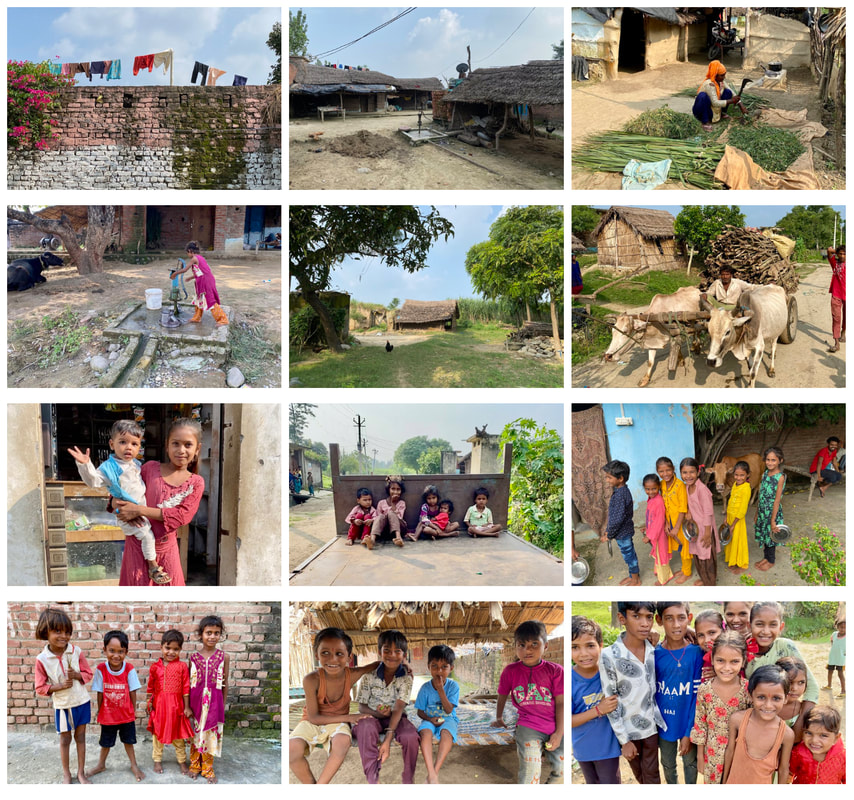 There are a lot of kids in the village who aimlessly hang around every day, and do not attend a school. They are highly at risk in so many ways. We are trying to get them to school, and much of our work is centred on changing parent's mindsets about the value of education vs having their kids involved in labour and other forms of exploitation eg married in their early teens or trafficked. It is not uncommon to hear about kids being sold to traffickers for $50US never to be seen again. If these kids do go to a government school, the quality of teaching is generally very poor, not to mention they must walk between 5 to 8km each way to get there. It breaks my heart! On Mother's Day, I honour and celebrate the amazing mothers and women in our lives who love and sacrifice for us to flourish and live our best lives. Despite their differences, mothers around the world share a common hope for their children's future. This Mother’s Day I especially honour my mum. She fought for me and believed in my dream to be a teacher (and she still does!). From what I understand I was the first kid from both sides of my family to ever go to university. Mum, you were the one who helped me to do so much more than I ever thought I could. I love you mum! I see this too in my wife – the fight, the passion, her relentless, never-ending love for our 3 kids. Thank you …Our kids are awesome individuals and I am certainly a better dad because of you. As an educator of 36 years I’ve seen SO MANY changes, but if there is one thing that remains the same – the love and fierce determination of a mum as she cares for her kids, invested in their education, wanting only what is best for them. We wouldn’t want it any other way - even when sometimes you might cause this Principal some grief from time to time. I honour you all. Today at the school gate, I asked a Year 3 student where his school hat was, his answer was “my mum forgot to give it to me”. I told him that he had to take responsibility for his actions and that it was not his mother’s fault …gee, some mums really cop it! Thank you to the mums at my school – you really are amazing and I am in awe of what you do. I’m deeply moved by the stories of these four remarkable women. They are mums of some of the kids who attend some of our Project Help India Centres. Day in and day out each one of these women faces extreme hardship due to poverty and limited resources. They worry about their children's future and recognise that education is key to a better life, free from hunger and desperation. This Mother's Day, I extend my heartfelt appreciation to the mothers of over 670 children who attend our centres five days a week. We acknowledge the challenges that you face on a daily basis, and how you fight for the welfare and safety of your children. It is a privilege for us at Project Help India to care for, and educate your children, and we will continue to do so with dedication and passion. I think you are some of the most courageous women on this planet. Anita's Story - she hopes that her daughters will become literate and lead a good life, not impacted by their father's addictions. Pinki's Story - she hopes that her children will have a better quality life, free of poverty. Poonam's Story - she hopes that her children will not have to endure the same hardships and struggles that she has had in life. Urmila's Story - she hopes that her children will be safe and free from their father's addictions and violence. We must care for our mums - empower them and give them every ounce of credit they deserve …each is an inspiration and an example of the power of sacrificial love, resilience, strength and incredible patience. Thank you freestocks for your great image at the top!
I find it a sad and confronting irony that this week, that some of the most disadvantaged children on this planet were doing their bit on ‘Earth Day 23’ to make their world a better place. I actually think it’s quite scandalous (and inspiring) that these children who have inherited basically nothing in life, except for a dirty slum, are the ones who, with smiles on their faces, are enthusiastically cleaning their patch and making a difference.
Kids are kids no matter where in the world I see exactly the same for the children who I work with and alongside at my school in Sydney. They are kind, compassionate, inclusive, creative and generous in their willingness to help and serve others and their community. We would all agree that our planet needs hope. It makes me wonder what happens after childhood that hardens so many adults? I suggest that one way to make a significant difference is to give greater recognition to the precious stage of life called ‘childhood.’ Children provide us with both an opportunity and a solution We must listen to children more - giving them a voice to bring their perspective, creativity and ideas for solving problems to shape and impact the world they are growing up in. We must give children more opportunities to ‘be’ the solution - the smiles on their faces, energy and enthusiasm that I consistently see in all children, from the poorest of the poor to some of the most wealthy, is all the evidence I need to know that they can surely do a better job than most adults. Kids love to get their hands dirty but most of the time we don’t let them (oh dear, they might get germs!). We must be committed to change and to be bringers of hope - why? because of our children need us to have hope. A vicious cycle is created when kids see adults as despondent, cynical and pessimistic about the future and life in general. Education is key - to bring hope and to make change happen, priorities within the curriculum must be challenged. Let’s also consider how much time we are giving kids each day, whilst they are at school, to do the things that really matter, to have impact in their community and the lives of others, connecting with others - to be truly human. Hope is a two way street I am personally committed to make a difference in my life and work to bring hope to children. But when I think deeply about this, it’s actually the kids who bring and give me so much hope and inspiration. I’m sure there are children in your life who do the same for you. Let us be mindful of the children, being born today, in a world torn apart by humans. Let us show our children a more excellent way to walk on the earth and be human, truly human. Let us love this world we’ve been breaking apart and let our love bring wholeness. And let us love one another with a compassionate heart for it is love that makes us human, human. (Brian McLaren, ‘Weep for the World’ – (stanzas 2&3)) What the kids did on Earth Day 2023 inspired someone enough to tell the media about their initiative and efforts. Check out this news clip that featured on @Himilaya News. The item talks about Project Help India students who went into the slum river, jungles and fields to clean up garbage and plastics. Today my school held our annual ‘Grandparents and Special Friends Day’. It was such a heart-warming occasion. The sun was shining, the rain held off and the children’s performances were magnificent. The classrooms looked brilliant showcasing the artistic endeavours and academic work of our students. I thank and honour the hard work of the teachers and many others who made the occassion possible.
This morning I encouraged our visitors to consider the following reflections. Time with a grandparent or special friend is a precious gift for a child. Grandparents and special friends have a significant part to play in a child’s life irrespective of the quantity of time - so whether they are able to spend a lot of time together or just a day or two a year it can be impactful in that child’s development. From my perspective, it can be particularly valuable in three ways:
We’ve enjoyed another great week at school this week. A big ‘shout out’ to our Year 3 and 5 students who have approached the NAPLAN exams with maturity determination and a growth mindset. I have faith that each student has given their very best effort each day.
For me there is a ‘tension’ with my conflicting feelings about NAPLAN. I definitely believe that the tests do not provide the full picture of who children are - what makes an individual remarkable, exceptional and unique. Tests are also a snapshot in time. We celebrate a child’s achievements and contribution in all aspects of their schooling. Yet, the process of NAPLAN and exams can offer an opportunity for children. We do children no favours if we diminish NAPLAN to such a point that we say the results and the exam process holds no merit. I think a MamaMia opinion piece this week (link here) summed it up well; Life is full of tests and insisting that they are inconsequential isn’t doing students any favours. Sometimes, we need to work hard under pressure. Sometimes, we need to perform. Sometimes, we need to complete a task in a set amount of time and we will be evaluated on it. That’s life. Sometimes we feel stressed and worried, and have to sit with discomfort. By being prepared and doing our best, we learn that those feelings will pass, and life goes on. I am sure that you would agree that this thought applies to us adults in our lives. One of the greatest character strengths that we can encourage in children is resilience. The concept of resilience requires us to fall down in order to be able to get back up. The way we learn to approach exams, challenges and mistakes can promote resilience. In contrast, expectations of perfectionism can lead to negative mental health consequences for young people. There is a shocking correlation between perfectionism and lack of resilience, and university students withdrawing or ‘dropping out’. Our kids need to learn that it’s okay to make a mistake and to learn from this. Similarly feedback for improvement should be viewed as a gift. There must be no shame in failing or making a mistake. I encourage all parents to help your child/ren to know and embrace the thought that school is the ideal place to fail safely. Let go of the thought that your child’s mistakes will have a negative impact on their future success, or, if I can say this without possibly offending some - that your child’s mistakes are a reflection of you as a parent… a ‘perfect’ A+ report does not reflect a perfect child. More than ever our children need to know that regardless of the problem, the mistake, or the perceived or actual ‘failure’ - we love, value and embrace them no matter what. If not, children quickly learn that they cannot turn to us (as teachers and parents) for help when they really need it. Hard lessons learned in the care and nurture of a primary school are much ‘safer’ than the same mistakes made as a teenager - especially if over 18 years of age. We must also be a strong, resilient school community that collectively works together for the wellbeing and flourishing of all children and families. I believe that this is a strength of our school, but we must never take it for granted, and continue to support, understand and have empathy for one another. Student NAPLAN results provide us with important data that guides the school in identifying individual strengths and abilities, tracking growth and setting improvement goals. The data assists teachers in planning lessons and programs to target the point of needs of learners individually and as a cohort. NAPLAN data also informs the professional learning targets for teachers and for us as a school. For example, if we were to see perhaps weaker Mathematics results, the NAPLAN data helps us to determine areas for ongoing training and development in the teaching of Mathematics. My own professional mentor challenges my thinking, especially in regard to the pressure of the perfectionistic expectations that I tend to place on myself. One important ‘mantra’ that I have taken on board thanks to my mentor is this: “I have done my best, with God’s help, with the resources I have.” This mantra sits perfectly with how I think our kids need to view NAPLAN …treat the opportunity with respect, be thankful for the challenge, and be confident in the knowledge that you gave it your best shot with the resources that at the time. Your NAPLAN results can help you to learn and grow but do not reflect who you truly are, nor will they determine your ultimate success or future. Most importantly, know that with all trials and challenges that will surely come your way, know that God is with you and He loves you unconditionally - no matter what. We can rejoice, too, when we run into problems and trials, for we know that they are good for us—they help us learn to be patient. And patience develops strength of character in us and helps us trust God more each time we use it until finally our hope and faith are strong and steady. Romans 5:3-4 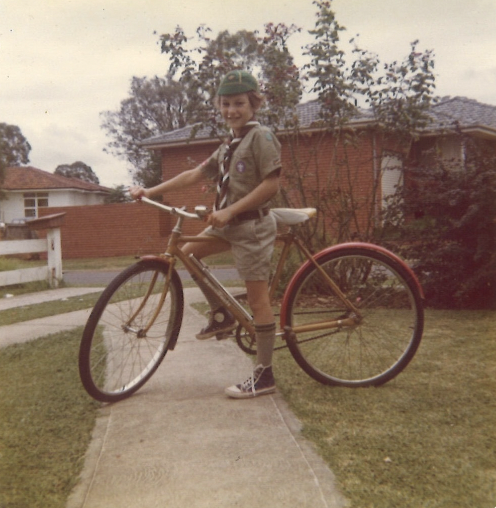 At a parent function last week I shared some recollections from childhood. For me, when I was a child, one of the greatest joys was the opportunity to experience nature. Firstly, may I preface that back in the seventies when I was growing up, I was essentially allowed to ‘roam the street’. As a child I would ride my bike anywhere in my home town of Ingleburn. Here I am on the morning of my 9th birthday in my Cubs uniform and favourite 'gym boots' (I got the bike for my birthday), so pleased and proud. My family’s rule was that wherever I was, I had to be back home 5 minutes after the street lights went on in the evening. Otherwise I was in big trouble! On weekends I was given greater latitude and allowed to ride my bike a few miles to the Georges River. Here, my friends and I would swim unattended and unsupervised at the local swimming hole. I have many wonderful memories of catching butterflies, guppies, yabbies and the occasional wild budgerigar. I have no doubt that these experiences shaped my resilience, risk taking, sense of adventure and love of nature. Jump forward 30 years to the time my three kids were all primary aged, some of our family’s most precious memories include long days and late evenings spent playing and swimming together at Coogee Beach, and a holiday shack in the ‘middle of nowhere’ north of Tamworth that we would visit for holidays twice a year. It was in this rural location that we soaked up the walks in the bush, seeing the kangaroos, sitting around campfires and looking up at the stars at night. We all still miss that place so much - it was a haven for a decade’s worth of family holidays. Reflecting on these memories, I recognise that it is now a challenging time to be a parent, as we battle the ever increasing pull of screen time and indoor co-curricular activities. There is a growing body of literature and research that shows positive correlations between experiences of nature, unstructured exercise and playing (this does not include a soccer or netball coaching camp as an example) and time spent outdoors with positive mental health outcomes for children, adolescents and further into the later years of life. I highly recommend this book by Pasi Sahlberg (2019) ‘Let the Children Play: How More Play Will Save Our Schools and Help Children Thrive’. The Amazon synopsis for this book says the following; ‘Play is how children explore, discover, fail, succeed, socialise, and flourish. It is a fundamental element of the human condition. It's the key to giving school children skills they need to succeed - skills like creativity, innovation, teamwork, focus, resilience, expressiveness, empathy, concentration, and executive function. Expert organisations such as the American Academy of Pediatrics, the National Academy of Sciences, and the Centers for Disease Control agree that play and physical activity are critical foundations of childhood, academics, and future skills’ So, what can we do with our awareness of this knowledge? My encouragement, which draws on my experiences as both Principal and a father of three, is to create opportunities for time together - exploring rockpools, playing games at the park, hiking, swimming at the beach, a farm-stay holiday (with no kids club), and so much more. There are so many fabulous places to explore in our local area, across Sydney and its surrounds. Enjoy your children for ‘who they are now’, not who they are going to be, or who you hope them to be one day. Really see them for who they are and celebrate their talents, interests, personality and character. Laugh together. Tell your kids that you believe in them, share stories from your own childhood, have fun playing together and in doing so, you will create formative experiences and precious memories. As you do this, you are sowing into what I believe is ‘the’ most important of all life stages - childhood. Remember that spending time with family was one of the things we valued about the COVID lockdowns? How quickly we can move on from that awareness and be pressured back into the frantic pace of our lives. |
claremont.nsw.edu.auarchives
April 2024
categories |

